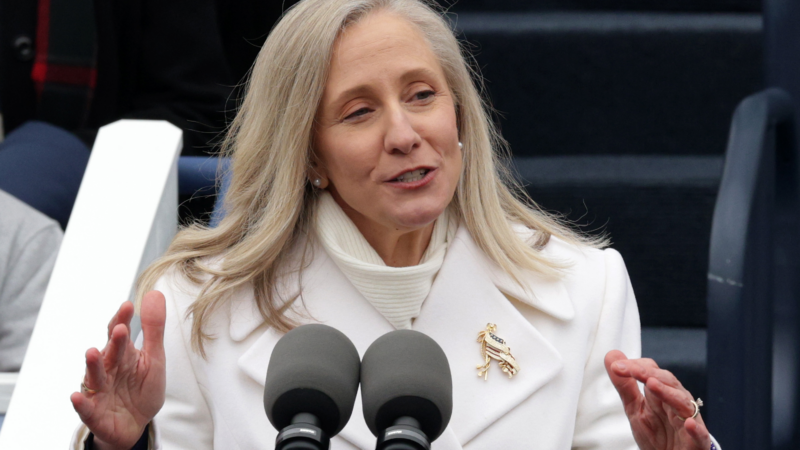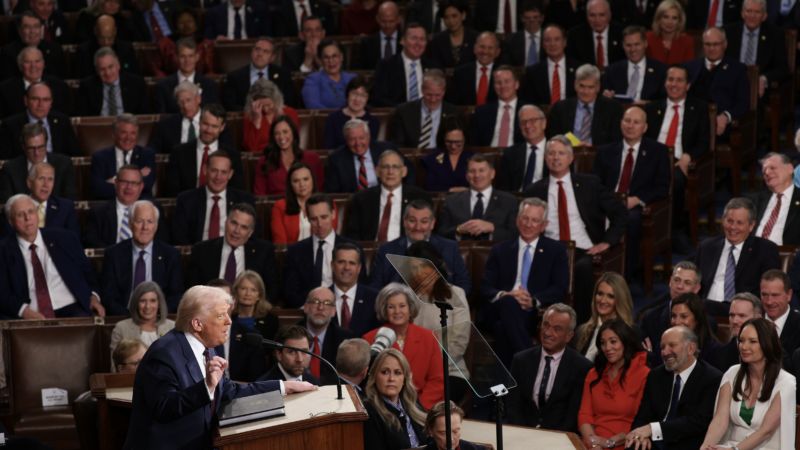Critics say GOP Medicaid cuts could slash fentanyl addiction treatment
As Republican lawmakers search for deep spending cuts, a growing number of critics fear a roll-back of Medicaid dollars spent helping Americans slammed by the street fentanyl crisis.
A report released Monday by Democrats on the Congressional Joint Economic Committee warned medical treatment for more than a million people in the U.S. now receiving medical treatment for opioid addiction, including fentanyl, could be affected.
“President Trump and Congressional Republicans have proposed gutting Medicaid— in order to pay for tax breaks for corporate special interests and billionaires — which would jeopardize addiction care just as our country is finally starting to see progress in addressing the fentanyl crisis,” said Sen. Maggie Hassan, a Democrat from New Hampshire, in a statement.
Over the last decade, as more states expanded Medicaid coverage under provisions of the Affordable Care Act, the program emerged as the leading source of insurance coverage for high quality addiction treatment in the U.S.
A study released in February by the Brookings Institution, a centrist think-tank that focuses extensively on drug policy issues, found nearly 90 percent of medical treatment for opioid and fentanyl addiction in the U.S. is paid for at least in part through Medicaid.
Most drug policy experts say that funding helped reduce drug overdose deaths, which plunged 26.6 percent nationwide from June 2023 to October 2024, according to the latest provisional data from the Centers for Disease Control and Prevention.
But the Affordable Care Act remains a target for many GOP lawmakers, who view the Obama-era program with suspicion. While it’s not yet clear how Republican budget proposals will impact Medicaid and its role in drug treatment, House GOP leaders have floated ideas that include slashing as much as $2.3 trillion from the program over the next decade.

Speaking over the weekend with Fox News, House Speaker Mike Johnson suggested young men, who are highly vulnerable to drug addiction and account for the vast majority of U.S. overdose deaths, should not qualify for Medicaid insurance.
“We have to eliminate people for example on Medicaid who are not eligible to be there, able-bodied workers, for example, young men, who should never be on the program at all,” Johnson said.
Research shows men are two to three times more likely to die from drug deaths, compared with women; and fentanyl is now a leading cause of death for men under the age of fifty.
A growing number of addiction researchers, doctors and people who survived drug addiction have raised alarm deep Medicaid cuts could derail the national recovery from the fentanyl-overdose epidemic.
“It’s very hard to look at the budget framework created by Republicans and imagine a scenario other than Medicaid being cut severely,” said Stanford University’s Keith Humphreys speaking with NPR last month. “It’s a frightening prospect. That will be extremely painful for families facing addiction.”
In a statement, Dr. Brian Hurley, head of the American Society of Addiction Medicine, urged lawmakers to protect Medicaid expansion for Americans facing addiction.
“It not only helps states pay for evidence-based addiction treatment…but it also undermines the drug cartels’ business model by reducing demand for illicit opioids,” Hurley said.
The Brookings Institution report concluded that a major rollback of Medicaid expansion could drastically reduce addiction care nationwide.
“Since Medicaid payments for treatment of OUD [opioid use disorder] dwarfs all other public sources of funding for OUD care, significant reductions would substantially reduce the nation’s economic commitment to addressing the opioid epidemic,” the Brookings report found.
Democrats tap Spanberger and Padilla to respond to State of the Union
Virginia Gov. Abigail Spanberger will deliver Democrats' response on Tuesday following President Trump's State of the Union address.
Is the YIMBY movement doomed?
For decades, rising home prices have been an engine for middle-class wealth. Now a growing movement wants to slow — or even reverse — that trend. Are the politics around new housing development inherently stacked against them?
What you need to know about tonight’s State of the Union address
The prime-time address is a chance for the president to tout his record ahead of this year's midterm elections. But it comes at a moment when Trump has seen his agenda complicated on multiple fronts.
A U.S. veteran adopted an orphan from Iran. Decades later, ICE is trying to deport her
The woman has no criminal record and is unsure what prompted the threat of removal. She fears being deported to Iran given her father's military service and her Christian faith.
What you need to know as Russia’s full-scale war on Ukraine enters its 5th year
Russia launched its full-scale invasion of Ukraine four years ago, and the fighting continues. Here's a look at where the war stands today.
‘Fear of Flying Clinic’ helps anxious travelers back into the skies
For 50 years, a San Francisco-based group has created a space where fearful flyers can get supported exposure to air travel.








